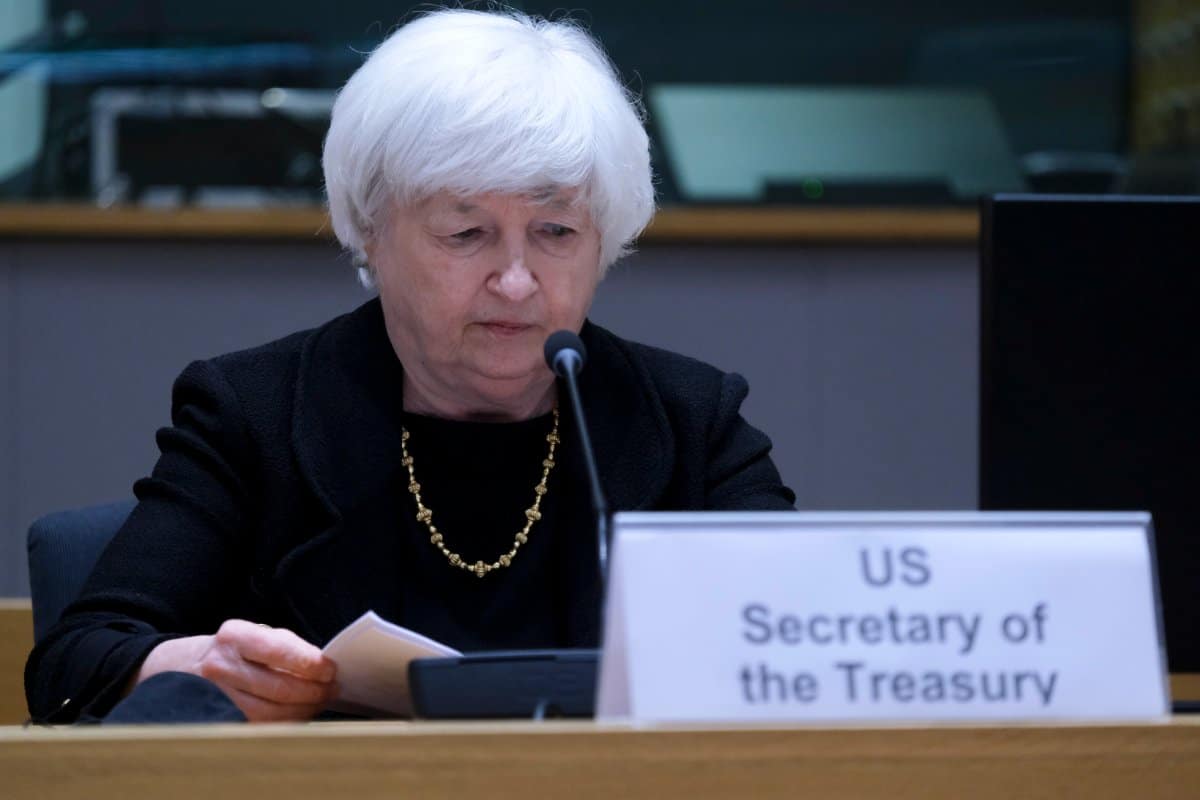U.S. Treasury Secretary Janet Yellen’s recent diplomatic visit to China has led to what she describes as significant improvements in U.S.-China relations, but there are still major differences in trade practices and economic policies that could have serious consequences for American industries.
Mutual Cooperation
After a recent diplomatic visit to China, U.S. Treasury Secretary Janet Yellen believes there has been a significant improvement in U.S.-China relations. After her visit, Yellen said that the tension between the United States and China was beginning to subside thanks to mutual cooperation between the two nations.
Yellen said, “While we have more to do, I believe that, over the past year, we have put our bilateral relationship on more stable footing.”
However, Yellen also stressed that while things may seem to be improving, responsible management of the complex relationship between the world’s two largest economies is still needed.
A Duty to Our Countries
“As the world’s two largest economies, we have a duty to our own countries and to the world to responsibly manage our complex relationship and to cooperate and show leadership on addressing pressing global challenges.”
Yellen also defended her talks with Chinese officials, saying, “Biden and I firmly reject the idea that the United States should decouple from China.” Yellen also acknowledged that the two nations still have major differences, and there will most likely be plenty of challenges ahead of them.
It should also be stated that all parties involved were well aware of the rivalry between these two countries. Over the past few decades, China has emerged as an economic and military powerhouse. Given the United States’ long-dominant global position, there is constant tension between these two nations.
The Issues at Hand
During her meeting with Chinese officials like Premier Li Qiang, Yellen focused her discussions on trade practices and economic issues due to concerns over China’s economic goals and policies.
The United States’ main concerns about China’s economic plans are its subsidies and policy support for industries such as solar panels and EVs, which could potentially create market overcapacity. Yellen warned that the potential impact of Chinese imports on these already competitive American industries could drive many American companies out of business.
Despite emphasizing the cooperation between these two nations, Yellen failed to propose new tariffs or specific trade actions against the Chinese products flooding the market.
China Shock
Yellen referred to the potential influx of imports as a “China shock,” like in the early 2000s, when a surge in Chinese imports led to significant job losses in U.S. manufacturing. In the early 2000s, a massive influx of cheap products flooded into America, and American manufacturing could not match the shockingly low prices, but some think this was no accident.
Now, some believe these businesses’ prices were so low that they were actually losing money, but the Chinese government covered their losses.
While it may sound counterproductive to support a business losing money, it is believed this was part of a larger strategy to undercut American businesses until they went bankrupt and left their Chinese counterparts to control the market.
Global Issues
Even if undercutting American businesses is not a deliberate strategy by the Chinese government, if no concrete steps are taken to prevent cheaper Chinese products from flooding the American market, there will inevitably be massive job losses in America once again.
The discussions also touched upon other global issues, like the Russian invasion of Ukraine, and Yellen felt there was some progress on addressing U.S. concerns on these issues as well, but nothing was concretely planned or executed.
The post U.S. Treasury Secretary’s Diplomatic Visit to China Shows Promise, but Trade Differences Loom first appeared on Swift Feed.
Featured Image Credit: Shutterstock / Alexandros Michailidis.

